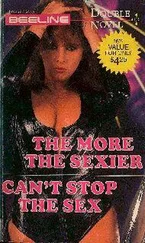The first was Alison, a trial lawyer. Alison was slim and meticulously groomed, but her face was pale, pinched, and unhappy-looking. She’d been a litigator at the same corporate law firm for over a decade. Now she was applying for general counsel positions at various companies, which seemed a logical next step, except that her heart clearly wasn’t in it. And sure enough, she hadn’t gotten a single job offer. On the strength of her credentials, she was advancing to the final round of interviews, only to be weeded out at the last minute. And she knew why, because the head-hunter who’d coordinated her interviews gave the same feedback each time: she lacked the right personality for the job. Alison, a self-described introvert, looked pained as she related this damning judgment.
The second alumna, Jillian, held a senior position at an environmental advocacy organization that she loved. Jillian came across as kind, cheerful, and down-to-earth. She was fortunate to spend much of her time researching and writing policy papers on topics she cared about. Sometimes, though, she had to chair meetings and make presentations. Although she felt deep satisfaction after these meetings, she didn’t enjoy the spotlight, and wanted my advice on staying cool when she felt scared.
So what was the difference between Alison and Jillian? Both were pseudo-extroverts, and you might say that Alison was trying and failing where Jillian was succeeding. But Alison’s problem was actually that she was acting out of character in the service of a project she didn’t care about. She didn’t love the law. She’d chosen to become a Wall Street litigator because it seemed to her that this was what powerful and successful lawyers did, so her pseudo-extroversion was not supported by deeper values. She was not telling herself, I’m doing this to advance work I care about deeply, and when the work is done I’ll settle back into my true self . Instead, her interior monologue was The route to success is to be the sort of person I am not . This is not self-monitoring; it is self-negation. Where Jillian acts out of character for the sake of worthy tasks that temporarily require a different orientation, Alison believes that there is something fundamentally wrong with who she is.
It’s not always so easy, it turns out, to identify your core personal projects. And it can be especially tough for introverts, who have spent so much of their lives conforming to extroverted norms that by the time they choose a career, or a calling, it feels perfectly normal to ignore their own preferences. They may be uncomfortable in law school or nursing school or in the marketing department, but no more so than they were back in middle school or summer camp.
I, too, was once in this position. I enjoyed practicing corporate law, and for a while I convinced myself that I was an attorney at heart. I badly wanted to believe it, since I had already invested years in law school and on-the-job training, and much about Wall Street law was alluring. My colleagues were intellectual, kind, and considerate (mostly). I made a good living. I had an office on the forty-second floor of a skyscraper with views of the Statue of Liberty. I enjoyed the idea that I could flourish in such a high-powered environment. And I was pretty good at asking the “but” and “what if” questions that are central to the thought processes of most lawyers.
It took me almost a decade to understand that the law was never my personal project, not even close. Today I can tell you unhesitatingly what is: my husband and sons; writing; promoting the values of this book. Once I realized this, I had to make a change. I look back on my years as a Wall Street lawyer as time spent in a foreign country. It was absorbing, it was exciting, and I got to meet a lot of interesting people whom I never would have known otherwise. But I was always an expatriate.
Having spent so much time navigating my own career transition and counseling others through theirs, I have found that there are three key steps to identifying your own core personal projects.
First, think back to what you loved to do when you were a child. How did you answer the question of what you wanted to be when you grew up? The specific answer you gave may have been off the mark, but the underlying impulse was not. If you wanted to be a fireman, what did a fireman mean to you? A good man who rescued people in distress? A daredevil? Or the simple pleasure of operating a truck? If you wanted to be a dancer, was it because you got to wear a costume, or because you craved applause, or was it the pure joy of twirling around at lightning speed? You may have known more about who you were then than you do now.
Second, pay attention to the work you gravitate to. At my law firm I never once volunteered to take on an extra corporate legal assignment, but I did spend a lot of time doing pro bono work for a nonprofit women’s leadership organization. I also sat on several law firm committees dedicated to mentoring, training, and personal development for young lawyers in the firm. Now, as you can probably tell from this book, I am not the committee type. But the goals of those committees lit me up, so that’s what I did.
Finally, pay attention to what you envy. Jealousy is an ugly emotion, but it tells the truth. You mostly envy those who have what you desire. I met my own envy after some of my former law school classmates got together and compared notes on alumni career tracks. They spoke with admiration and, yes, jealousy, of a classmate who argued regularly before the Supreme Court. At first I felt critical. More power to that classmate! I thought, congratulating myself on my magnanimity. Then I realized that my largesse came cheap, because I didn’t aspire to argue a case before the Supreme Court, or to any of the other accolades of lawyering. When I asked myself whom I did envy, the answer came back instantly. My college classmates who’d grown up to be writers or psychologists. Today I’m pursuing my own version of both those roles.
* * *
But even if you’re stretching yourself in the service of a core personal project, you don’t want to act out of character too much, or for too long. Remember those trips Professor Little made to the restroom in between speeches? Those hideout sessions tell us that, paradoxically, the best way to act out of character is to stay as true to yourself as you possibly can—starting by creating as many “restorative niches” as possible in your daily life.
“Restorative niche” is Professor Little’s term for the place you go when you want to return to your true self. It can be a physical place, like the path beside the Richelieu River, or a temporal one, like the quiet breaks you plan between sales calls. It can mean canceling your social plans on the weekend before a big meeting at work, practicing yoga or meditation, or choosing e-mail over an in-person meeting. (Even Victorian ladies, whose job effectively was to be available to friends and family, were expected to withdraw for a rest each afternoon.)
You choose a restorative niche when you close the door to your private office (if you’re lucky enough to have one) in between meetings. You can even create a restorative niche during a meeting, by carefully selecting where you sit, and when and how you participate. In his memoir In an Uncertain World , Robert Rubin, the treasury secretary under President Clinton, describes how he “always liked to be away from the center, whether in the Oval Office or the chief of staff’s office, where my regular seat became the foot of the table. That little bit of physical distance felt more comfortable to me, and let me read the room and comment from a perspective ever so slightly removed. I didn’t worry about being overlooked. No matter how far away you were sitting or standing, you could always just say, ‘Mr. President, I think this, that, or the other.’ ”
Читать дальше
![Сьюзан Кейн Quiet [The Power of Introverts in a World That Can't Stop Talking] обложка книги](/books/33084/syuzan-kejn-quiet-the-power-of-introverts-in-a-wo-cover.webp)











